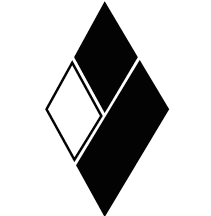Often, there is self-conflict when it comes to using “I” in an interview. Many fear that overusing "I" when describing what they've done throughout their career can portray negative connotations such as 'arrogant', 'self-centered', 'lone wolf' or not a 'team player', whereas, “We” seems more palatable. Our perception is that “We” automatically denotes collaboration, flexibility and leadership skills, but, truth be told, there is balance needed in using both words when interviewing.
“I” is powerful and, more importantly, telling in an interview. “I” describes ownership and is critical in proving your ability and skill to do a job. In this case, “I” does not depict an unhealthy ego, rather, it evokes confidence and ownership. Valuable and meaningful, it can determine whether or not you are truly qualified for a job. It is indicative of actual responsibilities executed. Hiring Managers and Recruiters look for the “I" in an interview. In fact, it is a simple way to discern who is qualified from who is not. In my experience as an executive headhunter, HR recruiter and talent consultant, this one simple word can make or break your interview. My advice is simple:
· Get comfortable and confident in saying “I”
· Use "I" to demonstrate your actual ownership of roles, responsibilities and achievements
· Balance your use of “I” with “We”
"We" is important in describing team work, collaboration, cultural fit and project work. It demonstrates the ability to play nicely in the sand box and minimizes the perception of an imbalanced ego. "We" is powerful in portraying your role in attaining a team goal, but, without context against the scope of real work that "I" own, it can also 'mask' actual ownership, especially where the work was done by others. Overuse of "We" in an interview can raise red flags so it needs to be balanced with what "I" actually did in collaboration with the broader "We". Use "We" to describe overall team goals and objectives, but not personal tasks. For tasks and responsibilities, use “I”. To balance your "I" and "We", consider your answer to the below questions:
· What role did “I" play on the team?
· How did “I" help the team reach its objectives?
· What did "I" deliver or achieve as part of a team?
Apply this same approach when writing your resume and preparing materials for career search and transition. Remember, you are selling your specific skills, responsibilities and achievements, not summarizing the description of the job you were tasked to perform. Make certain your bullet points, highlight your specific accomplishments and reflect the delicate balance of “I” and “We”.
When we bring our "I"ndividual skills and talents together “We” do great things.

